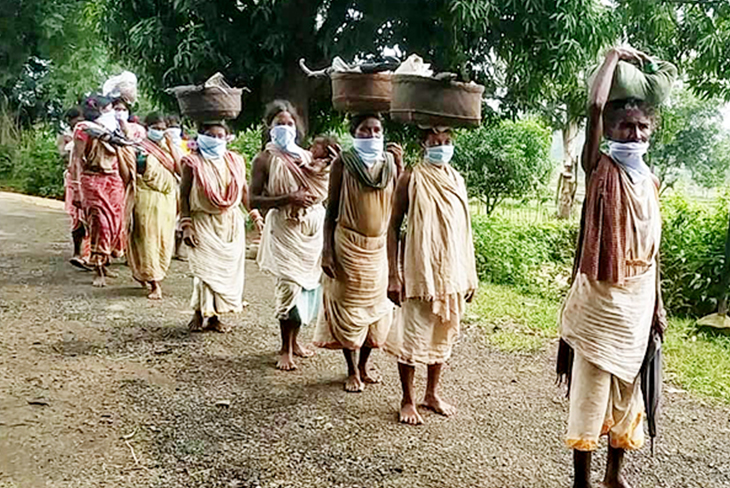The spring season has always stood for an abundance of food, nutrition, income and celebrations in the lives of tribal people in India. However, this year, the COVID-19-induced lockdown hugely affected these communities, especially the Particularly Vulnerable Tribal Groups (PVTGs). To assess the impact of the lockdown on their lives and livelihoods, including on their incomes, access to the various schemes and entitlements, health and mobility, we are conducting a three-round study across states. The findings of the first round were recently released. The study covers nine particularly vulnerable tribal groups from three states. These include the Bonda, Didayi, Dongria Kondh, Kutia Kondh and Paudi Bhuyan tribes from Odisha, the Birhor and Savar tribes from Jharkhand, and the Sahariya and Bhilala tribes from Madhya Pradesh. The survey interviewed a total of 450 people from these communities.
Storage of the harvested Minor Forest Produce (MFP) has always been a problem for PVTG communities. Hence, they have generally been selling those items immediately after collection. This year, given the lockdown, they have not been able to sell their produce. There should have been an increase made in storage facilities to enable them to store the MFP they were harvesting. However, 74% of the respondents shared that there was no change in the storage facilities at all and another 24% mentioned that there was in fact a decrease in the same. While 92% of the respondents expressed that there was a decrease in the sale of MFP in the local markets, 83% said there was also a drastic drop in the exchange of their products to get other essential goods.
During the study, the PVTG communities shared issues of concern as well. The immediate concerns pertained to ensuring food security and healthcare services at village level in tribal areas; adequate compensation for the PVTG households that faced massive income losses during lockdown; and enhancing livelihood security through employment opportunities for members from these communities under Mahatma Gandhi National Rural Employment Guarantee Act (MGNREGA). Other recommendations emerging from this study include enhancing storage facilities for MFP at the Gram Sabha level; special provisions for Gram Sabha to have control over and management of MFP during such lockdowns; and support in terms of marketing and sale of MFP.

